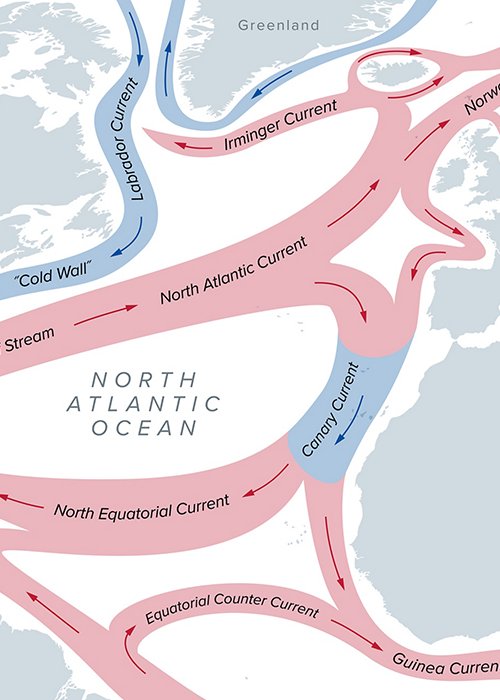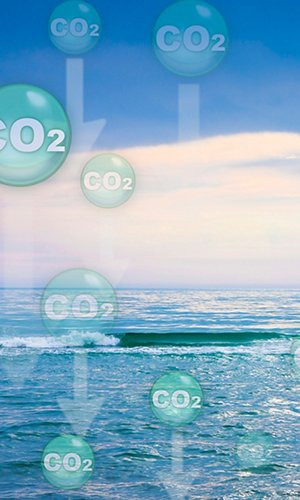A group of 40 internationally renowned climate scientists has written an open letter addressed to the Nordic Council of Ministers. The letter expresses urgent concerns regarding the potential collapse of the Atlantic Meridional Overturning Circulation (AMOC), a critical ocean system for regulating climate in the North Atlantic and other regions. The AMOC is a major ocean current system responsible for water circulation in the Atlantic Ocean, transferring heat and nutrients between the Southern and Northern Hemispheres. The well-known Gulf Stream is part of the AMOC system. AMOC is essential for global climate regulation and ocean stability, acting as an immense ocean conveyor belt that distributes warm and cold water across the seas. The AMOC transports large volumes of warm, salty water from the equatorial region to the North Atlantic. As this warm water reaches the North Atlantic, in areas like the Labrador Sea and the Greenland Sea, it cools and becomes denser. This process causes it to sink into the ocean's depths. After sinking, the cold, dense water flows southwards in the ocean depths, thus completing a global cycle that distributes heat and nutrients throughout the ocean. The AMOC plays a fundamental role in keeping the climate relatively mild in Europe and the North Atlantic by transferring heat from tropical regions. Thanks to the AMOC, Western and Northern Europe experience much milder temperatures compared to other regions at the same latitude.
The accelerated melting of glaciers in Greenland and increased rainfall are adding fresh water to the oceans, which reduces the water’s salinity and density, disrupting the usual sinking process that powers the AMOC. A slowdown or collapse of the AMOC would have serious consequences, such as drastic cooling in Europe, changes in global weather patterns, rising sea levels along the U.S. Atlantic coast, and significant impacts on ocean ecosystems. Despite global warming, a decrease in AMOC circulation could lead to a significant cooling in Northern Europe, along with an increase in extreme weather events, such as more intense storms and changes in rainfall patterns. As water temperatures rise, the ocean absorbs less carbon dioxide, which further accelerates climate change. Finally, global ocean circulation would be disrupted, affecting nutrient cycles and marine resources, such as fishing. The AMOC is a key component of the Earth's climate system, and its stability is crucial to avoiding sudden and unpredictable climate changes.




